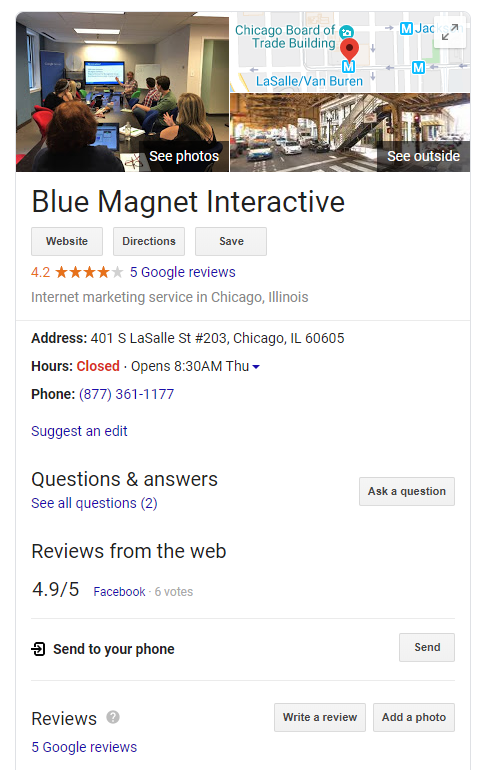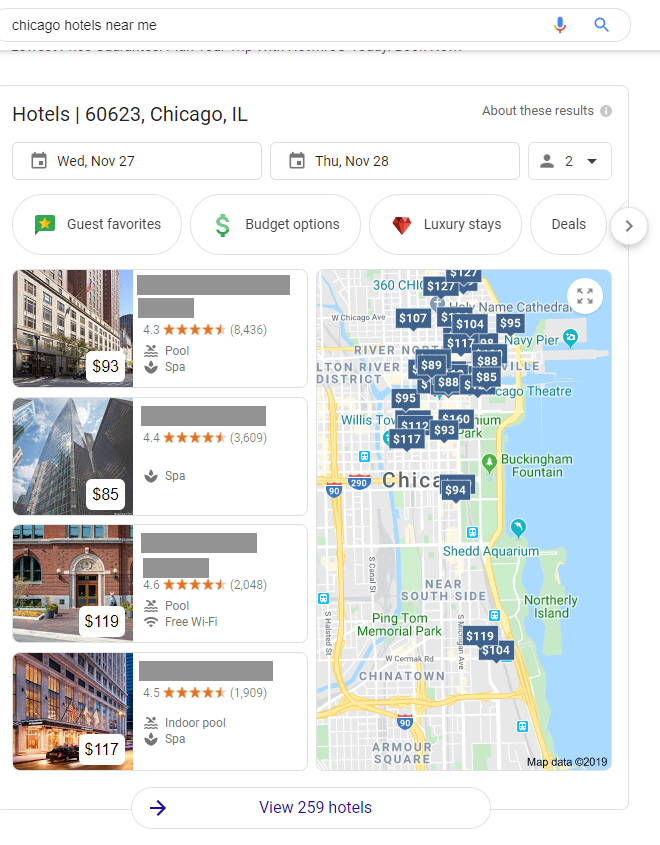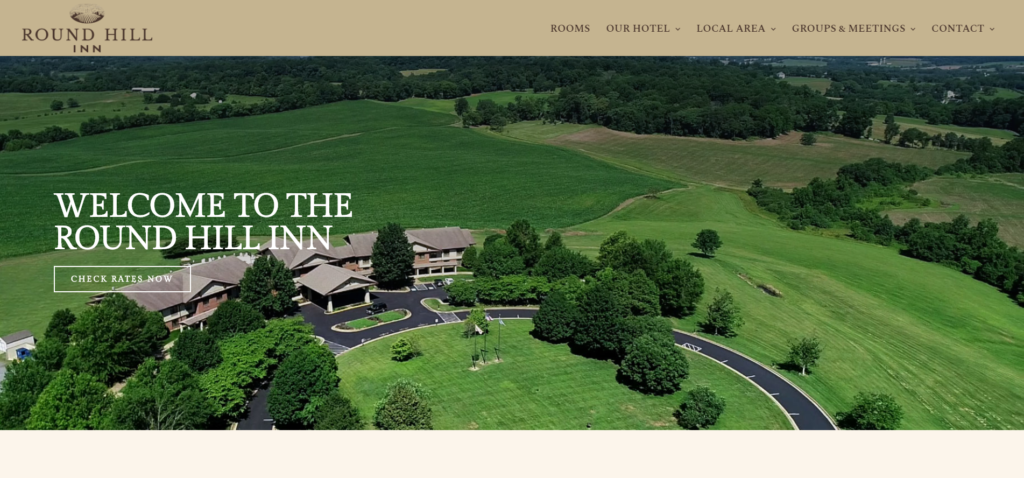A brief look at your current Google Analytics set up can tell you plenty about your website. More specifically, it can tell you if you are doing something right. The ultimate goal of any hotelier with an online presence is to attract web traffic from multiple sources and convert them into guests. Conversion rate is dependent on a variety of factors including advertising, website design, and social media – among others. For many hotels, these are platforms and tools that already exist in their marketing repertoire. And many more hotels still fail to see a real return on investing in these tools. Some of this can be attributed to utilization: it is not enough to simply say you have a website online and a Facebook Page. That alone, without optimization, will not yield the desired conversion rate on your site.
Generating The Right Kind of Web Traffic
Without web traffic, there are no conversions. Once your site is up and running, it is time to start generating visits. There are several ways to go about doing this:
Optimizing For Search Engines
Having a search engine-friendly website is crucial to getting found by organic traffic. Simply having a website online where you can book a stay is not sufficient enough to make you competitive. A hotel website should be engaging, informal, and have plenty of useful content for visitors and search engines to scour. Optimizing pages for search means creating robust content, having meta descriptions and titles, ensuring that load time is quick, and have links to other portions of your site and beyond. Additionally, your priority should be having a website that is useful and appealing to a potential guest, which we will touch on later.
Utilizing Google
Speaking of search engines, Google has an impressive array of tools for businesses. Every hotelier should have a Google My Business account set up. Here is where you can add your website, directions to your hotel, contact information, set up FAQs, show reviews, and share your social media links.

Another impressive feature for hoteliers is the local pack: a section of the search engine result page that displays relevant businesses in relation to a person’s geographical location. To be added to this pack, one must have a Google My Business account, an excellent track record of reviews, and own a search engine optimized (SEO) website. Additionally, for hotels, this feature displays prices and lets users check for availability.

Get Social
Social media is a critical tool in developing an online presence and attracting traffic to your site (and hopefully converting it). With over 3.2 billion people on social media as recently as 2018, hoteliers need to be where their audience is. Using channels like Facebook, Twitter, and Instagram can help hotels better connect with their audiences. These platforms allow hotels to engage with current and future guests, learn what their target market enjoys, and create the kind of content that promotes more of an experience than just a stay. Social media has quickly become one of the most powerful assets a business can have to increase brand awareness, drive traffic, and increase online conversion.
Use Paid Media
Another useful tool in a hotel’s digital marketing repertoire is the use of paid ads. Paid ads are online advertisements that can appear on a variety of channels such as Google, Facebook, and Instagram among others. These advertisements are paid for and can be helpful in converting guests who may be in different stages of their decision-making process. For example, someone who has only recently decided to look into hotels may see your advertisement on Google:

If someone has visited your website, you can retarget them with a Facebook Ad on their Newsfeed to increase the likelihood of a conversion. Paid ads are a great way for you to get front and center of a potential guest. This can bring in traffic and ultimately drive conversion rates.
Now That We Have Traffic, How Can We Convert?
It is no easy task to convert website visitors into hotel guests. But now that you have visitors coming to your site, it is important to implement best practices in order to get them to hit your “Check Rate” button.
User Experience
Experience is everything. Users who make it to your website should feel intrigued and compelled. While preferences can vary from person to person, there are some best practices one can use to increase the likelihood of reservation.
Functionality
The most basic of all must-haves for any hotel website: functionality. Does your site work? It is common to visit websites that load slowly, have buttons that do not work, display incorrectly, and generally make users feel like it is out of date or simply broken. These factors increase bounce rate and hinder conversion. Aside from creating a positive user experience, maintaining a healthy website can positively reinforce the expectation a potential guest has should they choose to book.
Visuals
While visuals and appeal can be subjective at times, there are best practices that can still be applied to ensure that your website is easy on the eyes and appealing where it counts. This means making sure that your website’s content is readable, images are clear and accurately represent the hotel, and colors are used appropriately so that they are not too dark nor too bright. Landing on a page with exceptionally bright colors or perhaps grainy, outdated images will most certainly lead to swift exit and ultimately create a dip in conversions and engagement.

Security
A no-brainer: your website should be safe. It would be lucky to have a guest book with you despite them receiving a warning that your website is not safe once they land on it. One of the more immediate steps to take here is to get an SSL certificate for your site. Doing so can keep you from being penalized on search engines as well as give visitors peace of mind while browsing. SSL secures online transactions and data transfers.
Get Your Message Across
Now that we have covered the fundamentals of a friendly user-experience, we’ll go over website essentials that help with conversion.
Setting The Right Expectations
Part of an appealing stay is clearly defining the guest experience as they land on your site. Many hotels fail to do so by neglecting basic website updates. A common mistake is using outdated or low-quality imagery. Photos of your hotel should be appealing and accurately represent what guests can expect during their stay. Another mishap is forgetting to mention any onsite updates to the hotel, such as a change in amenities, services, or failing to mention any renovations and remodeling that can disrupt a person’s stay.
Making Use of Content
On that note, keeping these items updated also helps create an appeal. Use your website to communicate any unique things a person can find or experience during their stay. By creating an authentic brand image, you are more likely to connect with and convert website visitors. We always recommended adding “local area” sections—pages on your site that help visitors find local attractions, areas of historical significance, and things to do near your hotel. This further helps in selling an experience rather than just a reservation. By adding epic content onto your site you are building new ways to engage with visitors, helping you exceed visitor expectations and build excitement for potential guests.
Another item search engines and visitors love are the FAQ sections of your site. Keeping them up-to-date and informal will not only assist in potential conversions but may earn a place at the very top of the first search engine results page. This is known as the featured snippet, an informational section that comes before any actual ranked results to help answer common questions. This can be a huge advantage for anyone who may not be ranking on the first page as this snippet sits at “position zero” above your competition.
A Successful Conversion Rate Is Dependent On Your Digital Efforts
Managing your website, social media, and online reputation can be a time-consuming process, but it does yield impressive results when executed properly. A multi-channel approach to your digital marketing can immediately increase your conversion rate by allowing your website to be found through a variety of sources and platforms, both paid and organically. If your hotel is looking to bring its current marketing strategy up to speed with competition, feel free to reach out to one of our marketeers here at Blue Magnet Interactive.




